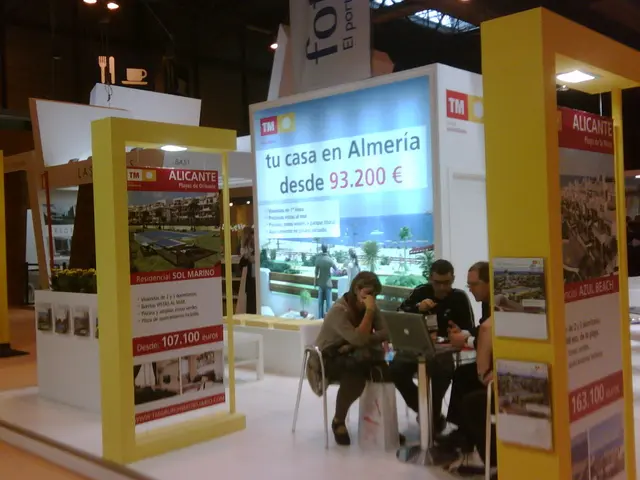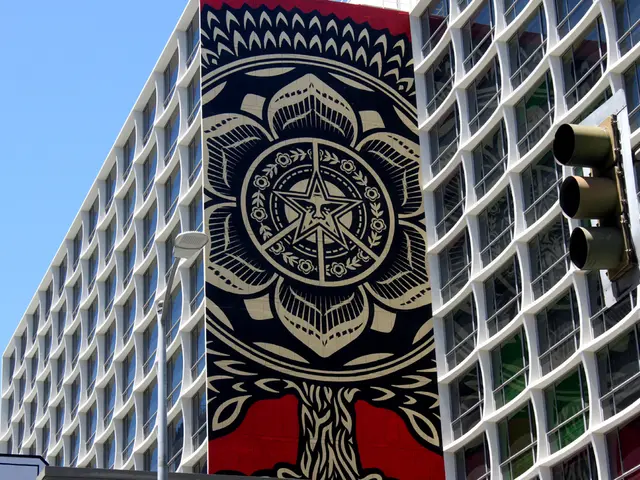Despite concerns over climate change, the city council has adopted a development plan for Radefelder Allee West.
Controversy Surrounds Leipzig's Building Plan 422 "Radefelder Allee West"
Environmental concerns have been mounting against Leipzig's building plan for "Radefelder Allee West," set to commence in 2024. In September, the BUND Leipzig, an environmental protection organization, vehemently criticized the project, focusing on its potential impact on the local ecosystem. The plan entails the construction on a significant agricultural area, which, according to SPD councilor Andreas Geisler, will contribute to the expansion of Leipzig's northern business district and worsen the already strained natural landscape.
The BUND Leipzig highlighted the environmental value of the Radefelder Allee, a 2-kilometer-long avenue lined with 320 winter linden trees. These trees have miraculously withstood droughts and cover 6,150 square meters, offering shade for the adjacent bike path. The alley also retains 75,000 liters of rainwater annually, contributing to flood protection, and sequesters significant amounts of carbon and fine dust.
The Initiative Stadtnatur, another environmental organization, has also voiced its opposition to the plan, expressing concern particularly about the extensive land-consuming nature of the proposed development. They emphasized that the city's climate emergency declared in October 2019 would be contradicted by the development plan, which allows for building on an area of 137 hectares.
On the opposite side, the IHK Leipzig has advocated for the plan's approval. According to Dr. Fabian Magerl, CEO of the IHK, the industrial area could provide opportunities for 3,000 new jobs, boosting the region's economy. The location is strategically situated near efficient transport infrastructure, making it an ideal industrial hub.
In an attempt to reconcile the conflicting perspectives, the Greens proposed an amendment motion to ensure the new industrial area would meet the city's climate protection goals. While the motion passed, a proposal to develop the area as an "Eco-Industrial Park" failed. The Greens and other opposing factions contend that the city should prioritize climate neutrality and sustainable development, ensuring minimal motorized individual traffic and maximizing public transportation and cycling options for employees.
The controversy revolves around balancing economic growth with environmental concerns, particularly in relation to the city's sustainability and climate protection goals. The Greens, BUND Leipzig, and Initiative Stadtnatur, pressure the city to prioritize these objectives in the development of the industrial area. Meanwhile, the IHK advocates for the economic benefits of the project, emphasizing the creation of job opportunities and location advantages. The city council will continue to navigate these challenges, seeking solutions that address the needs of both the environment and the economy.
- The controversy surrounding Leipzig's Building Plan 422 "Radefelder Allee West" extends to the realm of environmental-science, as various organizations, including BUND Leipzig and Initiative Stadtnatur, express concerns about its potential impact on the local ecosystem and climate-change.
- In the general-news, the concern about the project's environmental value has been rising, with focus on the significant agricultural area involved, the winter linden trees along Radefelder Allee, and the benefits these trees provide, such as carbon sequestration and flood protection.
- The politics of the situation are complex, as the IHK Leipzig, a significant player in the local industry, advocates for the plan's approval, citing potential job creation and strategic location advantages, while the Greens and opposing factions push for the prioritization of climate neutrality and sustainable development.
- The finance and business sectors are also involved, as the industrial area could provide opportunities for 3,000 new jobs, potentially boosting the region's economy, according to Dr. Fabian Magerl, CEO of the IHK.
- Crime-and-justice might also be a concern, as the development could potentially lead to increased traffic and associated issues, a point that the Greens and other opposing factions argue should be addressed in the city's planning, to ensure minimal motorized individual traffic and maximize public transportation and cycling options for employees.








